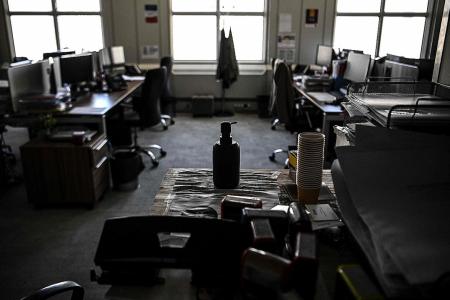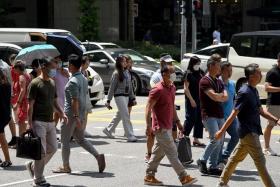How 2020 has changed work forever
Reskilling now more crucial for workers as businesses leverage more on AI and digitalisation during the pandemic
The year 2020 has truly been an unprecedented one. The pandemic massively changed how we live and socialise, while lockdowns, social distancing, and remote working have challenged business leaders to redefine the world of work.
One of the unfortunate results we've seen from businesses rethinking how we work, is the undeniable impact it is having on jobs.
In its recent Global Stakeholder Series, Salesforce set out to discover the key areas Singaporeans are concerned with and how work priorities have shifted amid the pandemic.
A digital imperative
The biggest change for businesses is the adoption of remote work, and 69 per cent of respondents say remote work will become the norm.
The sudden acceleration in digitisation clearly illustrates that businesses now have a digital imperative.
On top of maintaining productivity and performance, technology helps the workforce learn to build resilience through adaptability, and step up employee training and skills development to respond to the ever-changing work environment the pandemic has created.
Reskilling revolution
Singaporeans have concerns surrounding jobs, as 81 per cent say income equality is not improving, while 72 per cent say access to job opportunities is not improving.
While companies are learning to adapt, so must the workforce through reskilling.
Many workers have lost their jobs in the pandemic while many are also being reskilled and redeployed.
Reskilling will become more crucial as the nature of business continues to evolve with artificial intelligence (AI) automating more tasks.
Our Salesforce free online learning platform - Trailhead - has seen an increase of 37 per cent in sign-ups, a clear indication that people around the world are taking the task of reskilling or upskilling into their own hands.
Offering options to reskill like these will be critical in creating the flexible, resilient and adaptive workforces of the future.
Greatest platform for change
A fundamental aspect businesses should have renewed perspective on is leadership.
In our research, 57 per cent of respondents say closing global inequalities should be a high priority for businesses while 56 per cent felt it was critical their employer gives back to the community, with 63 per cent stating that climate change should be a high priority for businesses.
Business leaders are directly under pressure to evolve, step up and ensure their businesses act responsibly and re-evaluate the old school of thought for business successes that placed great importance on profit over people.
Where do we go from here?
Singaporeans believe their employers have duties and responsibilities to the societies in which they operate, and business can be the greatest platform for change.
Businesses and people have an opportunity to re-imagine this new world by transforming with technology, focusing on human-centric values and skills, and paving the way for equal access and opportunity, so that the future of work benefits the broader community.
Get The New Paper on your phone with the free TNP app. Download from the Apple App Store or Google Play Store now




